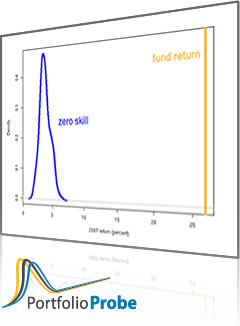Follow us using:
Newsletter Sign-up
Monthly Archives: January 2011
Beware Mr Market
Thinking of the market as having a personality can be fun and educational. But it has a dark side as well. Benjamin Graham The idea of Mr Market was created by Benjamin Graham as a way of conveying the wisdom of fundamental analysis. Graham’s intentions were to make people act more rationally. Ironically, thinking of … Continue reading
Financial instability
Instability in the economy seems to be the zeitgeist of the week. Counter-intuitives Science Daily has a story on a mathematical model of extinction. Apparently a key finding is that the most effective interventions in the model when a species declines are counter-intuitive. An analogy: brakes don’t stop you when you are driving in snow, … Continue reading
A field guide to market participants
Fundamental Hawk (perusii balancesheetus) Very discriminating in diet. Often seen scratching in the undergrowth. Subsists on irrationality, short-lived variety only. Macro Harrier (exsanguinus economicus) Flies very high. Reports of bombardier behavior (unsubstantiated). Common Quant (quantus quantus) Flies backwards looking in mirror. Seldom seen without a factor model. High Frequency Quant (quantus nanosecondii) Flies backwards really, … Continue reading
Review of “R Graphs Cookbook” by Hrishi Mittal
Executive summary: Extremely useful for new users, informative to even quite seasoned users. Refereeing Once upon a time a publisher asked if I would referee a book (unspecified) about R. In an instance that can only be described as psychotic I said yes. That bit of insanity turned out to be a good thing. I … Continue reading
Paying interest and the number e
Suppose I borrow a dollar from you and I’ll pay you 100% interest at the end of the year. How much money will you have then? $1 * (1 + 1) = $2 What happens if instead the interest is calculated as 50% twice in the year? $1 * (1.5 * 1.5) = $2.25 After … Continue reading
In the blogosphere this week: sunshine and Vegas
Gambling Falkenblog has a post called: Why Do People Gamble? This includes the often-stated “problem” that the same people both: pay for insurance pay to gamble Maybe I’m being thick, but I don’t see any problem. I see both these activities as buying positive skewness: paying a little now for an uncertain but big positive … Continue reading
Normal market accidents
We think of accidents as abnormal events, but there is “normal accident” theory. We don’t think of accidents happening in markets, but they do. That’s why it’s called a market crash. For normal accidents to come into play, two conditions need to hold: the system is complex the system is tightly coupled Certainly the financial … Continue reading
Posted in R language, Risk
Tagged contagion, market crash, normal accident, too big to fail
1 Comment
Elsewhere in the blogosphere this week
Markets Sex and statistics Marginal Revolution had the post Sex and Statistics or Heteroscedasticity is Hot which reports on the OkTrends post The Mathematics of Beauty. The summary is that conditional on their average beauty rating, the women with more variable ratings get more interest. The post proposes a theory that there is less competition … Continue reading
Posted in Economics, Fund management in general
Tagged forecasting, price movement, volatility puzzle
1 Comment
The number 1 novice quant mistake
It is ever so easy to make blunders when doing quantitative finance. Very popular with novices is to analyze prices rather than returns. Regression on the prices When you want returns, you should understand log returns versus simple returns. Here we will be randomly generating our “returns” (with R) and we will act as if … Continue reading
Boris The Banker explains efficient markets
Amy Anyone: What is EMH? Boris The Banker: That’s the Efficient Market Hypothesis, or sometimes the Efficient Markets Hypothesis. Amy: What’s that? Boris: It says that all available and relevant information has been taken into account in the price of items in the market — a stock market for example. Amy: Does it have any … Continue reading
Posted in Fund management in general
Tagged Boris The Banker, efficient market hypothesis, EMH, humor
1 Comment
